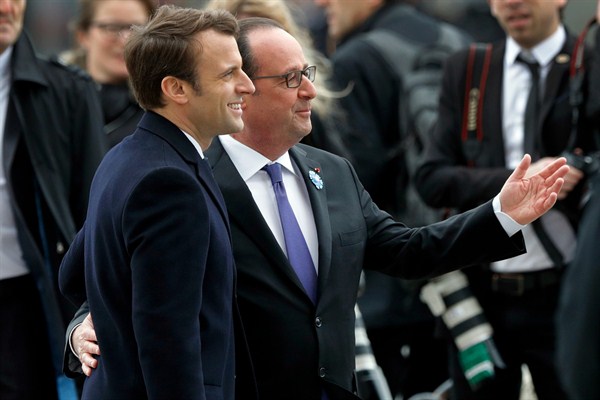Emmanuel Macron has never said anything noteworthy about the United Nations. But his victory in this weekend’s French presidential election increases the chances that France and Europe still have a role to play in defending international cooperation. It is probable that the three main European powers—Britain, France and Germany—will be active supporters of the U.N. and other multilateral bodies for at least the rest of this decade. They may be able to offset, at least in part, the Trump administration’s retreat from multilateralism.
Just a few months ago, it would have been hard to make even this guardedly optimistic statement with any certainty. Europe’s ability to shape U.N. diplomacy as well as broader multilateral affairs has been decreasing for many years. But last June’s Brexit vote withdrawing the U.K. from the European Union looked like the beginning of a far steeper decline, potentially precipitating a wave of populism and nationalism that could force European leaders to give up their multilateral commitments.
In Britain, many successful backers of Brexit have also called for the U.K. to walk away from foreign aid and international engagement more generally. In France, nationalist presidential challenger Marine Le Pen seemed poised to realign France with Russia and China in the Security Council. In Germany, Chancellor Angela Merkel has been struggling with the political fallout from her generous attitude toward refugees.

